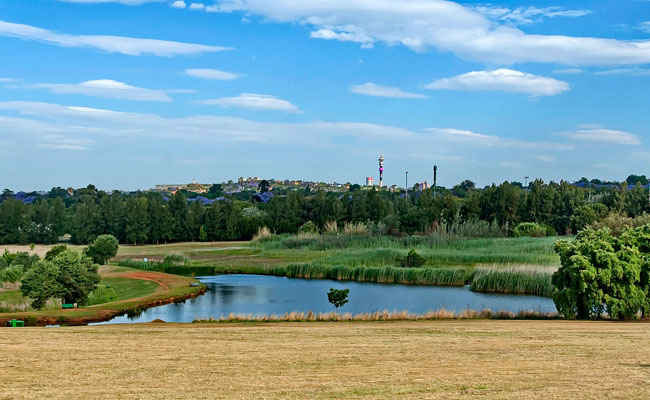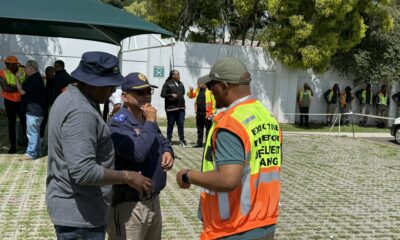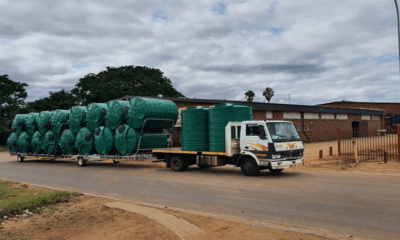News
Joburg Sparks Outrage Over Plans to ‘Alienate’ Parks Like Marks Park Amid Secrecy, Public Backlash

Alarm bells are ringing across the city as Johannesburg residents mobilize against what they see as an opaque and potentially damaging attempt by the city to “alienate” key public spaces, including the beloved Marks Park in Emmarentia, the Killarney Country Club, and parts of Zoo Lake.
On the agenda for the 25–26 June City Council meeting was a proposal that many interpreted as a move to sell off or privatise major recreational land parcels under the management of the Johannesburg Property Company (JPC). These “alienation” plans—shrouded in bureaucratic language and lacking clear public communication—have triggered widespread outrage and a petition now nearing 9,000 signatures.
A Green Heritage at Risk
At the centre of the uproar is Marks Park, part of a broader 173-hectare site known as Portion 33 of the Farm Braamfontein. The site, which includes ecologically vital areas like the Emmarentia greenbelt and cultural landmarks like Pirates Sports Club, was originally donated to the people of Johannesburg for perpetual public use.
“This isn’t just land, it’s legacy,” said Anchen Dreyer, great-granddaughter of land donor Louw Geldenhuys. “The city cannot just override donor intent or public trust for commercial gain.”
Community concern goes beyond one park. Critics like DA Ward Councillor Nicolene Jonker warn that the city’s vague references to the larger land parcel, coupled with its classification of Marks Park as a “non-core capital asset,” suggest a broader strategy to monetise public land under the guise of lease reviews or “maximising” underutilised property.
The City’s Defence: “No Sale, Yet”
JPC General Manager Sizeka Tshabalala has pushed back against claims that parks are about to be sold off, stating the city is merely seeking to update outdated lease agreements. She insists any new terms will follow public consultation.
“This isn’t about privatisation, it’s about transparency and fair value,” said Tshabalala, noting that some longstanding tenants currently pay as little as R2 to R49 per year.
But critics say actions speak louder than words. “We’re seeing language that clearly lays the groundwork for long-term leasing, redevelopment for private purposes, and potentially even sale,” said Jonker. “And we’ve seen this movie before.”
Trust Deficit: City’s Track Record Under Fire
Groups like JoburgCAN, a civil society division of OUTA, are urging caution but also engagement. Julia Fish, one of its community coordinators, notes that while no final decision has yet been taken on alienating Marks Park, the city’s poor track record of communication and accountability is cause for concern.
“There’s a deep trust deficit,” said Fish. “Residents are rightly worried that phrases like ‘maximising land use’ are code for commercialisation. Past experiences, like the Parkhurst Bowling Club fiasco, have made people suspicious.”
A Precedent in Play?
Community members point to the city’s increasing reliance on “rent-seeking behaviour” setting untenably high leases, letting properties decay, then redeveloping them for commercial gain as a red flag.
“Once land is alienated, it rarely returns to full public control,” said Jonker. “The city is treating public spaces like balance-sheet liabilities instead of community assets.”
And while the city promises public consultation, residents fear it’s being treated as a box-ticking exercise rather than a genuine democratic process. Jonker says the city has already failed to produce critical documents, such as the Surveyor-General diagram defining the actual land parcels up for discussion, raising further transparency concerns.
What’s Next? Civil Society Gears Up
If the council approves the JPC’s request, a formal public participation process will begin. That process will determine the future of these spaces and whether Johannesburg remains a city that values green, open, democratic places, or one that sells off its commons for cash.
“Participation is power,” said Fish. “Even if flawed, this process allows us to push back. But we must be vigilant, informed, and engaged.”
Until then, the petition remains live. Residents are watching the next council steps closely—and preparing for what could be a defining moment in the fight for Johannesburg’s green legacy.
{Source: Daily Maverick}
Follow Joburg ETC on Facebook, Twitter , TikTok and Instagram
For more News in Johannesburg, visit joburgetc.com



























